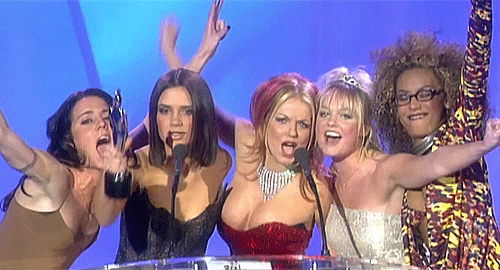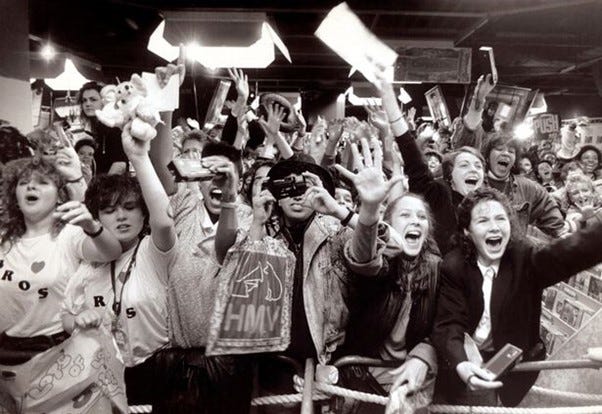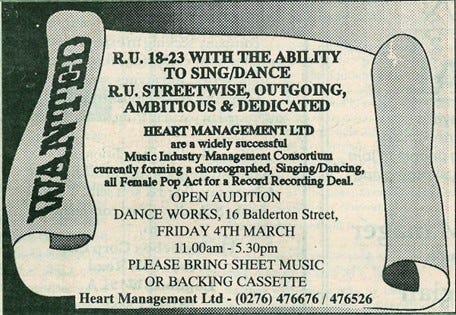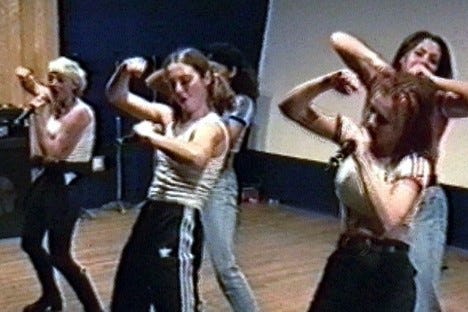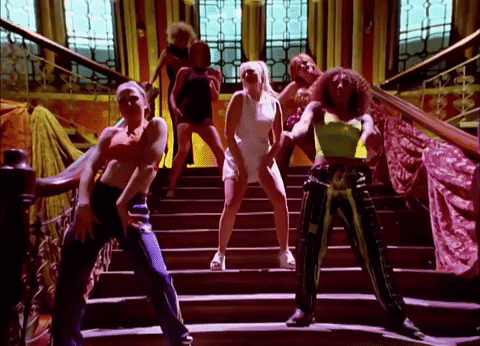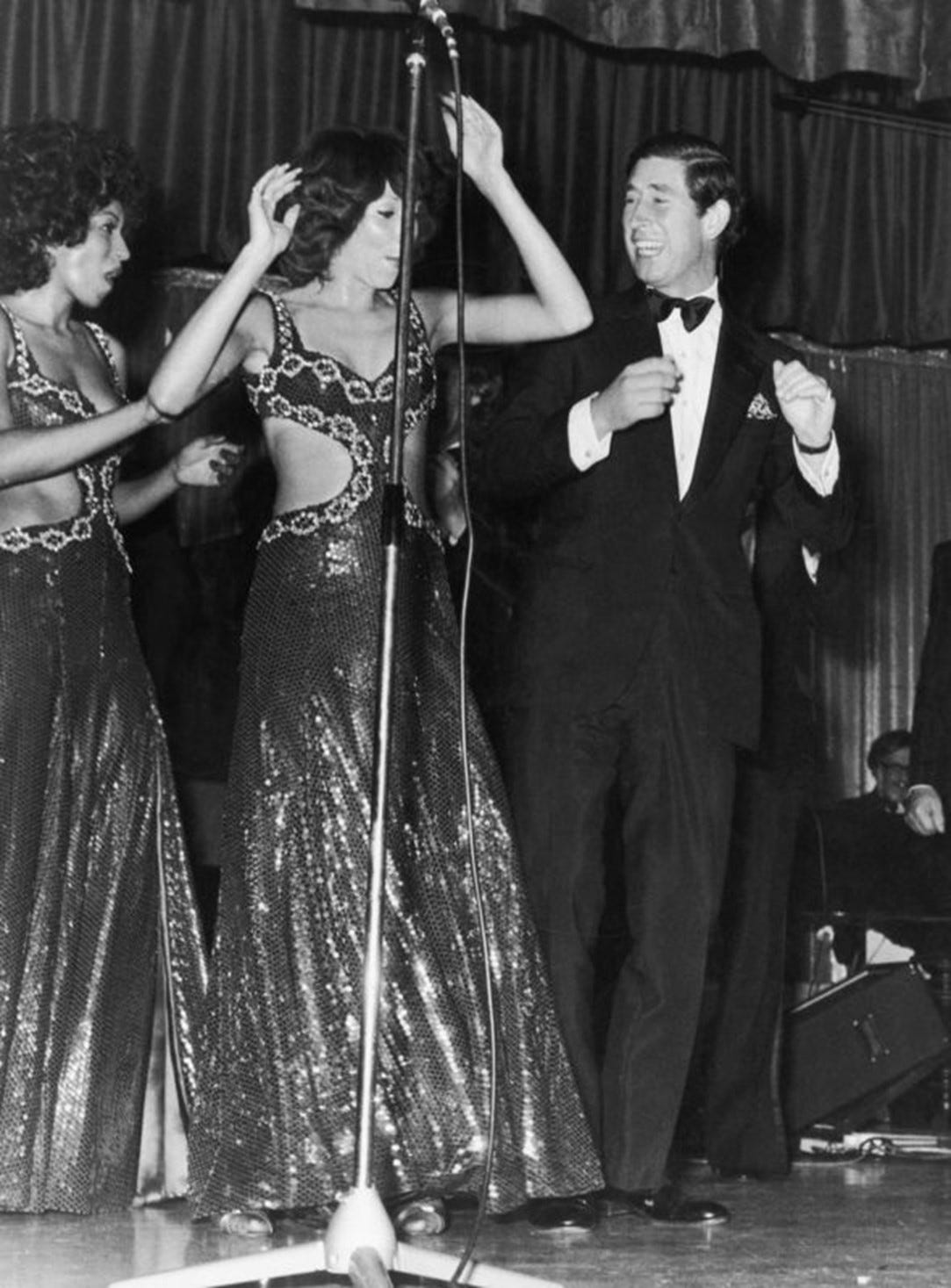Viva Forever! (2013)
The story of rise and fall of The Spice Girls and how their 'sure hit' musical failed to spice up our life (or financially break-even)
In the summer of 1996 The Spice Girls happened. Armed with a stone-cold classic of a debut single called Wannabe, the fivesome were ready to kick ass, take names and spread the gospel of girl power. Their attitude, mantra and general ‘breath of fresh air’ qualities catapulated them to global superstardom in the blink of an eye, but just four years later, it was all over. The ancient Chinese proverb “Those who shine brightest, burn up fastest” would have been an apt epitaph for the group.
However in late 2012, Viva Forever! was launched in London’s West End. In many ways, it aimed to do exactly as the name suggested; make the Spice Girls live forever, and (perhaps just as importantly) keep them making money for many years to come too. In the end Viva Forever! became Viva For-Six-Months! and lost millions of pounds - but to understand how we get there we must first go all the way back to 1984 to meet a middle-aged accountant called Bob.
Bob Herbert
In 1984 Bob Herbert was a 42 year old accountant who did the books for various cabaret clubs and music performers in London. The biggest act he worked with were The Three Degrees, whose heyday had long since passed1. Everything changed only by chance when his teenage son Chris made friends with a pair of twins called Matt and Luke. The twins were 15 years old with bright long blond hair and striking facial features and had just started a boy band together called Gloss. Herbert knew enough about the music industry to sense an X-factor was present and quickly became their manager. He introduced them to songwriters, financed their early demo tapes and started plotting their route to success. His daughter Nicky even became Luke’s girlfriend.
When the twins turned 18 and could finally sign a legal management contract they suddenly split from Herbert. They then changed their named to Bros and signed with the vastly more experienced music manager Tom Watkins, who had already taken the Pet Shop Boys to #1 in the single’s chart with West End Girls the year before.
Two years later Bros stormed to #1 in the charts with I Owe You Nothing and their debut album Push went quadruple platinum, ushering in an era of Brosmania powered by an army of teenage girls called ‘Brosettes’. Like many teen girl fandoms through the years, Brosettes were not to be messed with and in September 1988, a large section of Oxford Street in London had to be closed due to an overwhelming number of fans turning up at an HMV signing. The band’s official fan club, ‘The Bros Front’ claimed to have over 6 million members.
Bob Herbert did not receive a penny from their success. In his autobiography, Luke Goss mentioned Bob briefly.
"We will always be grateful to him [Bob Herbert] for giving us the time and space to improve, but I believe we would have done that anywhere".
Luke Goss
Despite the devastating blow Bob was not to be entirely discouraged. He had been right after all; Bros did have an X-factor and teenage girls had been ready for something different. Most importantly those teenage girls had real power; they sent The Beatles over-the-top in 1960s, made The Bay City Rollers superstars in the 1970s and now were doing the same with Bros. The pattern would soon repeat again… and he would be waiting to capitalise.
Heart Management
At the start of 1994, the first British teen idols of the 1990s had arrived in the form of Take That. Their sophomore album Everything Changes had made them pop icons, storming to #1 in late 1993 and eventually going quadruple platinum. The album also spawned an incredible four #1 singles, a UK chart record2. Young, energetic, effortless cool boys with a dash of edginess was the new formula for pop success. Bob Herbert was now working formally with his son Chris under the name Heart Management, and he had a smart idea.
“Boy bands saturated the market - the formula worked. Dad and our backer wanted to go down that route, but I wanted to reverse it. I thought a girl band – sassy, sexy and well put-together – could be more successful because it would appeal to female and male listeners. You’d double your audience”.
Chris Herbert
The idea quickly developed further; the girl band needed to be truly diverse as different, contrasting female characters would truly fly-in-the-face of identikit boy bands. There was just one problem; how would they recruit the members? An advertisement in The Stage, a prestigious 100-year-old British entertainment publication was purchased and appeared in the February 1994 edition. It worked and over 600 candidates turned up.
The Auditions
The 600 applicants were split into groups of 10 and each performed a dance routine to the song Stay by Eternal, followed by a solo song of their choice. After this, the field of 600 was whittled down to just 10, ahead of a second audition.
Between the first and second auditions two more girls who missed the first session were put through, creating a final 12. The first was Lianne Morgan, who couldn’t attend the first audition but had sent in a demo tape and pictures, which had impressed the management team3. The second addition was Geri Halliwell. She phoned up Heart Management after returning from a holiday in Spain and demanded that she be allowed to attend the call-back audition. Impressed by her sheer force of personality, she was invited to join as a ‘wildcard’ candidate.

Before the second call-back audition began Bob Herbert already had a list of the five women he believed would be the members of their new group. Their names were Victoria Adams, Melanie Brown, Michelle Stephenson, Lianne Morgan and Suzanne Tinker.
Michelle Stephenson had received the highest overall score at the first audition despite being just 18. Lianne’s powerful vocals on her demo tapes stood out a mile. Suzanne Tinker impressed with her rendition of Someday (I’m Coming Home) from The Bodyguard. Melanie Brown had ‘smashed’ a rendition of The Greatest Love of All by Whitney Houston and immediately stood out as the most natural match to the ‘street smart, extrovert,’ qualities they wanted. Finally, Victoria Adams had impressed them with her work ethic and more considered, cultured approach drawn from time at stage-school; her song of choice was Mein Herr, as performed by Liza Minelli in Cabaret.
On the day of the second audition, two of the final twelve failed to show. Melanie Chisholm had tonsillitis, whilst Suzanne Tinker was caught up in a London bomb scare4. The day continued regardless, starting with each girl being solo interviewed. This was the first time the management team had met Geri Halliwell; she arrived wearing a tight pink jumper, purple hot-pants and platform shoes, topped with vibrant ginger pigtails. Mel B would later say that her first impression of Geri was “a mad eccentric nutter from another planet”.
In her solo interview, Geri was directly asked whether she thought being slightly older (at 21) than most of the other candidates could be a problem. She replied "I'm as old as you want me to be. I'll be ten with big boobs if you want”. Later that day she chosen to sing her own song ‘I Wanna be a Nightclub Queen’ that she claimed she had written when she was just seven. With Suzanne Tinker a no-show, the judging panel needed a replacement for the final five. Geri got the nod5.
The Final Five
The final five were instructed to attend a final recall audition one week later. When they arrived they were shocked to discover Lianne Morgan was not there. The management had decided that at 23 years old, she was too old to ‘fit in’ with the rest of the group6. Melanie Chisholm who had been appointed ‘first reserve’ after her bout of tonsillitis, appeared in her stead.
At the final audition, the girls had to learn the words and devise a dance to Signed, Sealed, Delivered by Stevie Wonder. After performing together they were all told they were in the final group, which would be called Touch. Rehearsals began just a few days later at Trinity Studios, followed by a summer of living together in a house in Maidenhead. During this time they also started to work on demos and dance routines but just a few weeks later Michelle Stephenson abruptly left the band after struggling to fit in and bond with the others.
She would later claim she felt that the musical direction was “very, very young pop” and not to her personal taste whilst Victoria would say she wasn’t willing to put in the hard work. As Michelle was the youngest member, Bob and Chris Herbert decided the replacement had to be equally fresh-faced. The singing coach the girls had been using suggested a couple of names, and this eventually led to Emma Bunton moving into the house for a one-week trial run.
“The others had all known each other for a bit. I had to meet them at a train station the first time and there were quite a few girls hanging around. But as soon as I saw them I knew who they were. We just clicked straight away".
Emma Bunton
Girl Power In Action
Nearly half a year after the search had begun and after much chopping and changing, the famous five were finally in place. During these early weeks, they wrote a number of songs including We’re Gonna Make It Happen and Sugar and Spice. During an aerobics lesson, Geri Halliwell suggested the name Spice as a better name for the band, which was enthusiastically supported by Emma Bunton, who felt it fit their diverse, different characters. However, the name was already in use by a group in America, leading to the addition of the suffix of Girls7.
This spicy self-assertion however didn’t end there. Despite Heart Management paying for their lodgings, training and demos, the group were frustrated at the lack of a record deal. In October 1994, armed with their demos and routines, they persuaded Bob Herbert to set-up a showcase performance where they could invite industry writers, products and A&R men to. Emma Bunton would later claim the showcase only happened after the girls parents helped pay for it. The showcase took place at Nomis Studios in Shepherd’s Bush and the response was extremely positive. This resulted in Heart Management putting a new, binding contract offer in front of the Spice Girls in January 1995, but encouraged by the positive reaction, the five girls delayed signing it. Geri and Mel B in particular felt they were ready to ‘go’ for it and to start making money. Heart Management wanted them to keep on working, rehearsing and getting better.
In March 1995 Bob Herbert experienced lightening striking twice as a group he had cultivated and supported once again abandoned him and signed a contract with an established music industry titan. The Spice Girls signed with Simon Fuller and the 19 Entertainment management8. Six months later, Fuller had secured a record deal with Virgin Records, which secured the girls a £500,000 advance.
"Simon was really cool. We had so many managers saying 'dress like this, sing that song, I can make you big stars'. Simon was really laid back and understood that we wanted a say in how our careers would go".
Mel B
The songs written by the Spice Girls upto that point, including Sugar and Spice would never be released. Under Fuller’s management, they were connected with experienced pop writers and would spend the rest of 1995 writing and preparing their debut album from scratch. Meanwhile, Bob Herbert was left with nothing once again, expect another steadfast resolution that he would still not give up on his dream…
From Wannabes to Global Stardom
In June 1996, the single and video for Wannabe dropped in the UK and immediately stormed to #1 in the charts. The video, featuring The Spice Girls dancing all over the iconic grand gothic staircase at the St Pancras Renaissance Hotel made it abundantly clear that this was not just another girl group, but one with attitude, personality and diversity. It captured the attention of a generation and seized the mid 90’s zeitgeist and Wannabe ended up as a #1 single in an astonishing 31 countries, becoming the biggest selling debut single by a female group of all time.
It was at this moment that Top of The Pops Magazine gave the girls their individual nicknames of ‘Posh, Scary, Sporty, Ginger and Baby’. The names were not invented by the band or Simon Fuller, but they were quickly embraced and each member started to dress, behave and perform more like their caricature. The effect was to make them even more relatable, real and endearing to a increasingly intoxicated public.
Their debut album Spice was released in November 1996 and in shipping 1.8 million copies in the UK alone became the fastest selling album since The Beatles. By the end of the year, two more #1 singles had been released (Say You’ll Be There and 2 Become 1) the latter of which sold 430,000 copies in one week to take the coveted Christmas #1 spot. The Spice Girls were also invited to switch on the Christmas lights on Oxford Street, drawing a crowd of 500,000 fans to the exact same place that an army of Brosettes had taken over less than 10 years earlier.
At the same time, Simon Fuller had signed lucrative sponsorship deals with Pepsi, Walkers, Cadbury’s and Polaroid and was preparing the group to conquer America. Wannabe was finally released in the US in January 1997, debuting at #11 in the Hot100 chart, before ending up at #1 for four consecutive weeks, whilst the album Spice ended up as the biggest selling album in America for that year. Peak ‘Spicemania’ was perhaps best underlined by their February performance at the Brit Awards, featuring Geri Halliwell’s now iconic Union Jack dress, which would became a cultural touchstone of the wider ‘Cool Britannia’ moment.
Indeed, such was their cultural cache that in May, the Spice Girls became the biggest talking point at the prestigious Cannes Film Festival by turning up and announcing they would be releasing a film called Spice World. The Spice Girls were quite literally the biggest act on the planet.
The Fall and a Reunion
It is therefore quite remarkable that just one year later Geri would quit the band and being an equally rapid decline. In late 1997 around the time of the release of their second album Spiceworld, Geri and Mel B once again convinced the group to make a radical decision, this time firing Simon Fuller and taking control of their own affairs. This put huge additional responsibilities on all the members and was later seen by all involved as a huge mistake9. When Geri suddenly left six months later, a host of projects, sponsorships and half an already written album were all shelved.
It was not until two and a half years after Geri’s departure that the Spice Girls released their third album Forever in late 2000. With a more ‘contemporary’ RnB sound, the album received very mixed reviews and failed to reach #1 in the UK album charts. Just one month later, the group announced an indefinite hiatus.
Seven years later, the group reunited as a full five piece to release a Greatest Hits album and announce a global tour. Each member was paid £10 million to take part and tickets for their seventeen UK shows at London’s O2 Arena sold out in under one minute, but the tour was fraught with problems. Eventually the global tour was ended halfway through, cancelling shows in Beijing, Hong Kong, Shanghai, Sydney, Cape Town and Buenos Aires.
It was clear that The Spice Girls were no longer interested in touring nor writing and releasing new music. Simon Fuller, now back in control of group, was given the challenge of finding a way to keep the group relevant and able to make money, despite these rather huge restrictions. He found the solution in Judy Cramer.
Viva Forever!
Judy Cramer spent the entirety of the 1990s trying to convince Benny Andersson and Bjorn Ulvaeus to give her the rights to ABBA’s back catalogue so she could create a stage show musical. Eventually, after ten years of passion and effort Mamma Mia! arrived in London’s West End in April 1999 and quickly became a huge global hit. To date, it has been performed in more than 40 countries and in 16 different languages and has grossed more than $2billion in ticket sales. It has also spawned two films, the first of which sold a record-breaking five million copies on DVD in the UK alone, meaning statisically a copy could be found in one in four homes.
Simon Fuller’s interest in working with Judy Cramer was therefore obvious; he saw the opportunity to repeat that same money-printing magic with another iconic group. Most importantly, just like with Mamma Mia!, a Spice Girls musical would not require significant input or time commitment from any of the Spice Girls themselves, nor would they be ‘played’ on stage by actors. Instead, the story would be fresh and modern, united by their back catalogue of musical hits.
In 2010 Viva Forever! was formally announced, alongside the addition of Jennifer Saunders of Ab Fab fame who would be the chief writer. Saunders knew the group, having previously appeared in Spice World, as well a Comic Relief version of the Who Do You Think You Are music video.
On 26th June 2012, exactly sixteen years to the day of the release of Wannabe, the Spice Girls, Saunders and Cramer appeared at a photoshoot on the same staircase at the St Pancras Renaissance Hotel that the girls had made so famous in their debut music video. It was a wonderful bit of PR for the musical and landing one month before the London Olympics it contributed to a general optimistic and patriotic mood that was in the air. As a final coup de grâce, the Spice Girls even showed up in the Closing Ceremony, performing as a fivesome for the first time in over half a decade, in another cheeky piece of brilliant promotion. As a result, over £4million worth of tickets were sold in advanced sales.
Viva Forever! premiered in the West End on 11th December 2012 at the Piccadilly Theatre and all five Spice Girls were in the house to celebrate. However, the start of the show was briefly delayed because Victoria Beckham turned up late.
The plot of the musical focused on a singer called Viva, who lives on a houseboat. She’s in a band called Eternity and gets through the auditions stages of a TV show similar to the X Factor. However, at the final round, the judges put Viva through on her own, without her band mates. Viva follows her dream and the rest of the play charts her journey into the world of overnight celebrity and its impact on her and the ‘forever friends’ she’s now lost. The show featured 23 musical numbers, including two solo songs (Look at Me by Geri Halliwell and I Turn to You by Mel C).
Viva For-Six-Months!
Unfortunately, the show was savaged by reviewers. The set-up around a TV talent show already felt out-dated and over-done and far too many songs were duds. The opening song in the musical was Wannabe, but the next four were ‘Something Kinda Funny’, ‘Let Love Lead the Way’, ‘Right Back at Ya’ and ‘Denying’. (Yeah, me neither). Eventually, six songs were cut along with a pruning back of the running time, but the damage was already done.
“Viva Forever? More like clapped-out Vauxhall Viva, five careless owners with far too many miles on the clock”
The Mirror
“One of the main reasons for the Spice Girls’ success was their big and contrasting personalities. Those are absent here”
The Evening Standard
“One could sense a miasma of disappointment emanating from an audience of up-for-it Spice Girls fans slowly realising that they had paid top whack to see a clunker”
The Telegraph
However, all was not lost as the relationship between reviews and critical consensus is famously unpredictable in the world of musicals. In 1999 Stewart Lee wrote that Ben Elton’s We Will Rock You would surely close within weeks, yet it ran for 12 years and 4,600 performances. Similarly, Wicked received a lukewarm response at best when it launched in 2006 but is still running in the West End today more than 15 years later. On the silver screen, The Greatest Showman was given poor reviews by the press in 2017 (56% on Rotten Tomatoes) but went on to become an instant cult-classic that made nearly $500million at the box office. Who needs good reviews when you have girl power?
Despite Jennifer Saunders defending the show publicly and claiming that ‘middle aged men’ not liking the show was no surprise, Viva Forever! unfortunately did need those good reviews. The show made money in the first four months due to the healthy advance sales, but from April, the show started playing out to an auditorium with more empty seats that filled ones. Losses quickly started racking up and the plug was pulled just five weeks later in early May, as a shocked and upset cast were told the last performance would be on June 29th. Viva Forever! lasted just six months and overall made a loss of £5million.
With significant amounts of theatrical egg on their face, in the decade since the Spice Girls have remained almost entirely dormant, bar a relatively short 13-date European Tour in 2019 that Victoria Beckham did not participate in. The last time the group performed as a five-piece remains the London 2012 Closing Ceremony.
In 2016, Mel B broke cover and criticised the musical, claiming it was not in line with what any of the girls really expected or wanted the show to be. However, everyone else involved has remained entirely silent, happy for everyone to forget that it ever happened. In recent years rumours have been swirling about a Simon Fuller and Paramount backed animated film featuring The Spice Girls as ‘girl power superheroes’, but no formal announcement has ever been made. As a result, the legacy and cultural impact of the Spice Girls remains firmly and indelibly linked to those crazy twenty-four months in the mid 1990s, which remains perhaps the only time that they truly gave us what we wanted; what we really really wanted.
Epilogue
And as for Bob Herbert? Despite being given two huge punches to the gut by the cruel and brutal world of pop music, he didn’t give up. Him and his son Chris started a new band in 1997, this time a ‘Spice Boy’ band with a bit of ‘modern, laddy attitude’ which would appeal to both teenage girls and teenage boys. That group was called Five (or 5ive) and would go on to sell ten million albums worldwide through huge global hits including Everybody Get Up, Slam Dunk (Da Funk) and If Ya Getting Down. However, shortly after 5ive had become household names, Bob Herbert tragically died in a car crash in London, aged just 57. Just three months later, 5ive would achieve the thing he had always truly wanted when they scored a UK #1 single with Keep On Moving.
Pop music. It’s a shit business.
Thank you for reading.
In an entirely unrelated but interesting note, The Three Degrees performed for (the then) Prince Charles at his 30th birthday in 1978 (below), after which he declared that they were his favourite band. There were even rumours that he was ‘besotted with’ and dating one of the three singers Sheila Ferguson, although for any Royal lawyers reading my footnotes, both parties have always firmly denied it.
Interestingly, the first single from the album ‘Why Can’t I Wake Up With You’ only made it to #2, but four follow up singles all reached the top spot (‘Pray’, ‘Relight My Fire’, ‘Babe’ and ‘Everything Changes’). This record stood for six years until it was beaten by Westlife, who’s eponymous debut album ended up with a quite incredible five #1 singles (‘Swear It Again’, ‘If I Let You Go’, ‘Flying Without Wings’, ‘I Have a Dream/Seasons in the Sun’ and ‘Fool Again’).
Lianne was borderline on the age limit at 23 but had some solid music performing experience, including providing backing vocals on a recent Tom Jones tour
The mid-1990s were years of significant IRA activity in London, meaning such inconveniences were not uncommon.
Chris Herbert would later say “Geri Halliwell walked through the door and… wow. Talk about filling a room. She had the X-factor. It wasn’t necessarily about talent; it was all about energy. That’s the thing about stars. They give off a power, a presence. It’s confidence borne of insecurity. There’s an internal war going on – that’s the DNA of a star”.
Lianne was not happy about her being dropped, despite being less than two years older than Geri Halliwell, who would eventually end up as a core member of the group. She claims she was ‘by far’ the best singer out of the final five members, and that their performance at the second rehearsal “sounded like a cat’s choir". This seems to not simply be a case of sour grapes, as both Victoria and Geri said Lianne was a fantastic singer in their respective autobiographies. In response, Lianne said that when she first heard Victoria sing at the auditions, her reaction was ‘Oh dear’.
Bob Herbert, not wanting to get in the way of their enthusiasm, agreed to the change, dooming the name Touch to be nothing more than the correct answer to a classic British pub quiz question.
Whilst in his early 20s and working in A&R at Chysalids Records, Fuller had signed Madonna shortly before her first hit ‘Holiday’. He set-up 19 Entertainment in 1985 and already had a reputation for helping artists make big money from record labels, sponsorship deals and international touring - the three things that the Spice Girls wanted to do the most.
Indeed, both Victoria Beckham and Emma Bunton felt so led astray by Geri and Mel B that they would actually re-sign with Simon Fuller within two years for their personal representation and he was given full control over their solo careers.



